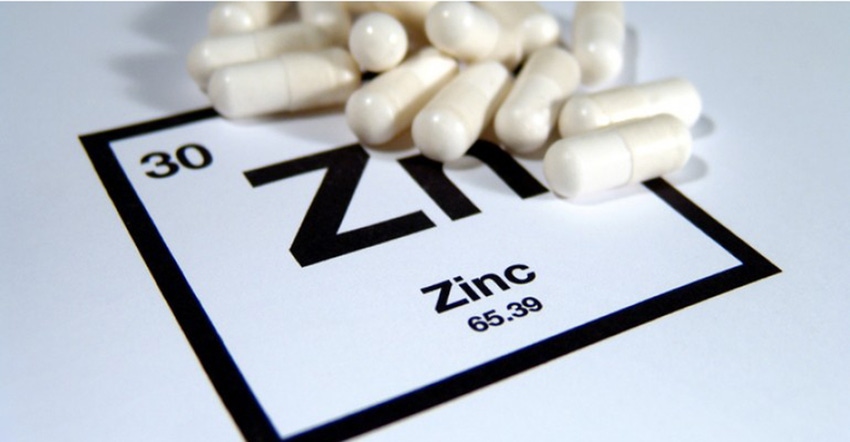Formulators can use results to base efficacious dosage levels for innovative immune-support supplements.

A new published study shows zinc picolinate at 10 mg, 25 mg and 50 mg per day all work to “prevent and mitigate” the SARS-CoV-2 coronavirus.
Study subjects were generally overweight, diabetic Hispanic women living in Florida.
The 104 patients who did not take the zinc were more than seven times more likely to develop symptomatic COVID-19 infection compared to those taking the zinc.
Researchers also found that for every additional comorbidity, the likelihood of developing symptomatic COVID019 infection increased 1.57 times.
A comorbidity is an underlying disease state beyond COVID—in this case, the leading such health conditions that lead to worse COVID outcomes are obesity, diabetes and cardiovascular disease.
“Despite the lack of official recognition for the role of nutrition in the fight against COVID-19 infection,” concluded the researchers, from two Florida universities, “multiple groups proposed zinc supplementation as an adjuvant for the management of participants.”
There have been a total of 29 studies on more than 50,000 patients in 16 countries using zinc for COVID-19 patients. In sum, the studies show a statistically significant improvements for hospitalization, ventilation and death outcomes.
In the current study, the group taking the zinc may have been taking zinc supplements beforehand, including as part of multivitamins, whereas the control group had not been taking supplemental zinc at all. That may be the reason all three zinc dosages were found to be effective.
No participants receiving 10 mg of zinc picolinate developed COVID-19 symptoms, while one in each of the 25 and 50 mg zinc reported symptoms. The reported symptoms in the zinc group were cough, sore throat, low-grade fever and generalized fatigue.
In the control group, there were nine cases of symptomatic COVID0-19 infections, with three requiring hospitalization and one died.
Honing in on zinc dosage levels
Researchers have hypothesized that zinc could reduce the severity and duration of cold symptoms by directly inhibiting rhinovirus binding and replication in the nasal mucosa and suppressing inflammation. In studies examining the effects of zinc on the common cold, zinc is usually administered in a lozenge or syrup that temporarily “sticks” to the mouth and throat, placing the zinc in contact with the rhinovirus in those areas. Zinc in lozenge or syrup form appears to reduce the duration, but not the severity, of symptoms when taken shortly after a person develops a cold.
In one randomized, double-blind, placebo-controlled clinical trial, 50 adults within 24 hours of developing the common cold took a zinc acetate lozenge (13.3 mg zinc) or placebo every 2–3 wakeful hours for as long as they had cold symptoms. In comparison with placebo, the zinc lozenges significantly reduced the duration of colds by 3 days and the severity of cold symptoms (cough, nasal discharge, and muscle aches).
A 2021 systematic review and meta-analysis included 28 randomized controlled trials (including the three described above) with a total of 5,446 participants (mostly adults younger than 65 years) who had a community-acquired viral respiratory tract infection or were inoculated with a rhinovirus.
Most trials provided zinc in the form of zinc acetate or gluconate lozenges at total daily doses of 45 mg to 300 mg for up to 2 weeks, but some trials used nasal sprays or gels. In participants who used zinc supplements, symptoms resolved an average of 2 days earlier than in those who received placebo. Symptoms on the third day were also milder in participants who used zinc, but average daily symptom severity did not differ between those who were and were not treated with zinc supplements.
The Daily Value of zinc is 11 mg/day. The amount typically formulated in multis ranges from 5-15mg per serving.
Zinc toxicity can cause nausea, diarrhea and headaches. The official tolerable upper intake level of zinc for adults is 40 mg/day.
In the AREDS study of 3,640 patients, the 80 mg/day zinc was seen to increase urological problems.
This study suggests an immunity supplement could get by with only 10 mg zinc per serving to achieve possible efficacy, assuming zinc is taken elsewhere in a multivitamin supplement product. It also suggests probably no more than 30 mg/serving to avoid any possibility of toxicity concerns—especially if a product is suggested to be taken on the regular and not just acutely, which is seen as de rigeur in these COVID times.
About the Author(s)
You May Also Like






.png?width=800&auto=webp&quality=80&disable=upscale)